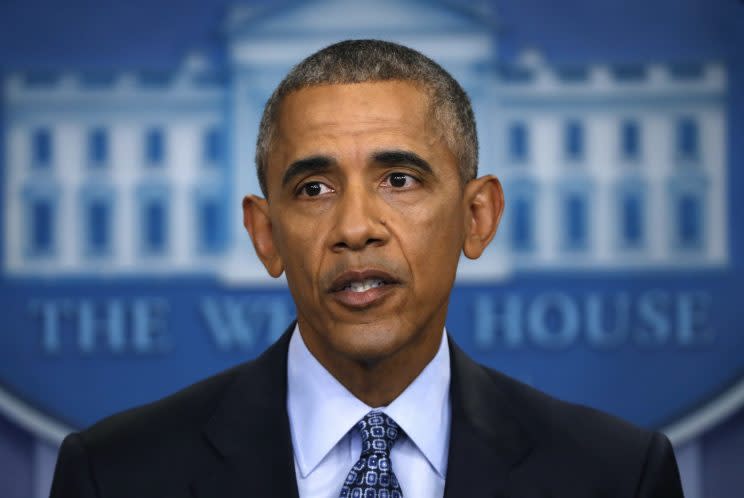President Obama defends Chelsea Manning commutation
At his final press conference as president of the United States, Barack Obama defended his controversial decision this week to commute convicted leaker Chelsea Manning’s sentence.
Obama was asked if he feared that commuting her sentence might send a message that leaking classified information might send the wrong message to groups like WikiLeaks. The Obama administration has accused Russian hackers of sharing information with WikiLeaks to interfere in the U.S. election.
But Obama maintained that Manning, who was convicted in 2013 of sharing classified material with WikiLeaks, had paid a serious price for her crimes.
“First of all, let’s be clear, Chelsea Manning has served a tough prison sentence. So the notion that the average person who was thinking about disclosing vital classified information would think that it goes unpunished, I don’t think would get that impression from the sentence that Chelsea Manning has served,” he said.
Obama proceeded to explain his perspective on the polarizing case of the former U.S. soldier.
“Given that she went to trial, that due process was carried out, that she took responsibility for her crime, that the sentence that she received was very disproportionate relative to what other leakers had received, and that she had served a considerable amount of time, that it made sense to commute — and not pardon — her sentence,” he continued.

On Aug. 21, 2013, Manning was sentenced to 35 years in prison. The commutation grant will expire this sentence on May 17, 2017.
“I feel very comfortable that justice has been served and that a message has still been sent that when it comes to our national security that wherever possible, we need folks who may have legitimate concerns about the actions of government or their superiors, or the agencies in which they work, that they try to work through the established channels and avail themselves to the whistleblower protections that have been put in place.”
Obama acknowledged that many critics and advocates do not think the aforementioned protections in place for whistleblowers are strong enough to actually protect them.
He said it’s common for anyone working in a big institution to feel that his or her values are at odds with the overall policies. But, he continued, the unique importance of national security needs to be kept in mind because actions can have serious consequences to military men and women overseas or U.S. security agencies’ ability to perform effectively.
A number of Republicans criticized Obama for the commutation decision. Donald Trump’s incoming press secretary, Sean Spicer, said Wednesday that the president-elect was “troubled” by the move, accusing Democrats of being hypocritical for their denunciations of WikiLeaks’ campaign disclosures.
“Chelsea Manning’s treachery put American lives at risk and exposed some of our nation’s most sensitive secrets,” House Speaker Paul Ryan said in a statement. “President Obama now leaves in place a dangerous precedent that those who compromise our national security won’t be held accountable for their crimes.”
The White House announced the news about Manning’s commutation in a list of 64 people who were receiving pardons and 209 people who were granted commutations.
Manning’s commutation reads:
Chelsea Elizabeth Manning – Oklahoma City, OK
Offense: One specification of wrongful and wanton publication to the internet intelligence belonging to the United States; five specifications of stealing, purloining or knowingly converting U.S. government records; six specifications of willful communication of information relating to the national defense; one specification of willful communication of information in unlawful possession; one specification of willful communication of information relating to the national defense by exceeding authorized access to a U.S. government computer; one specification of willful communication of information relating to the national defense obtained by accessing a U.S. government computer; five specifications of failure to obey order or regulation; U.S. Army Court Martial
Sentence: 35 years’ imprisonment (August 21, 2013)
Commutation Grant: Prison sentence commuted to expire on May 17, 2017.
Read more from Yahoo News:

 Yahoo Sport
Yahoo Sport 







































